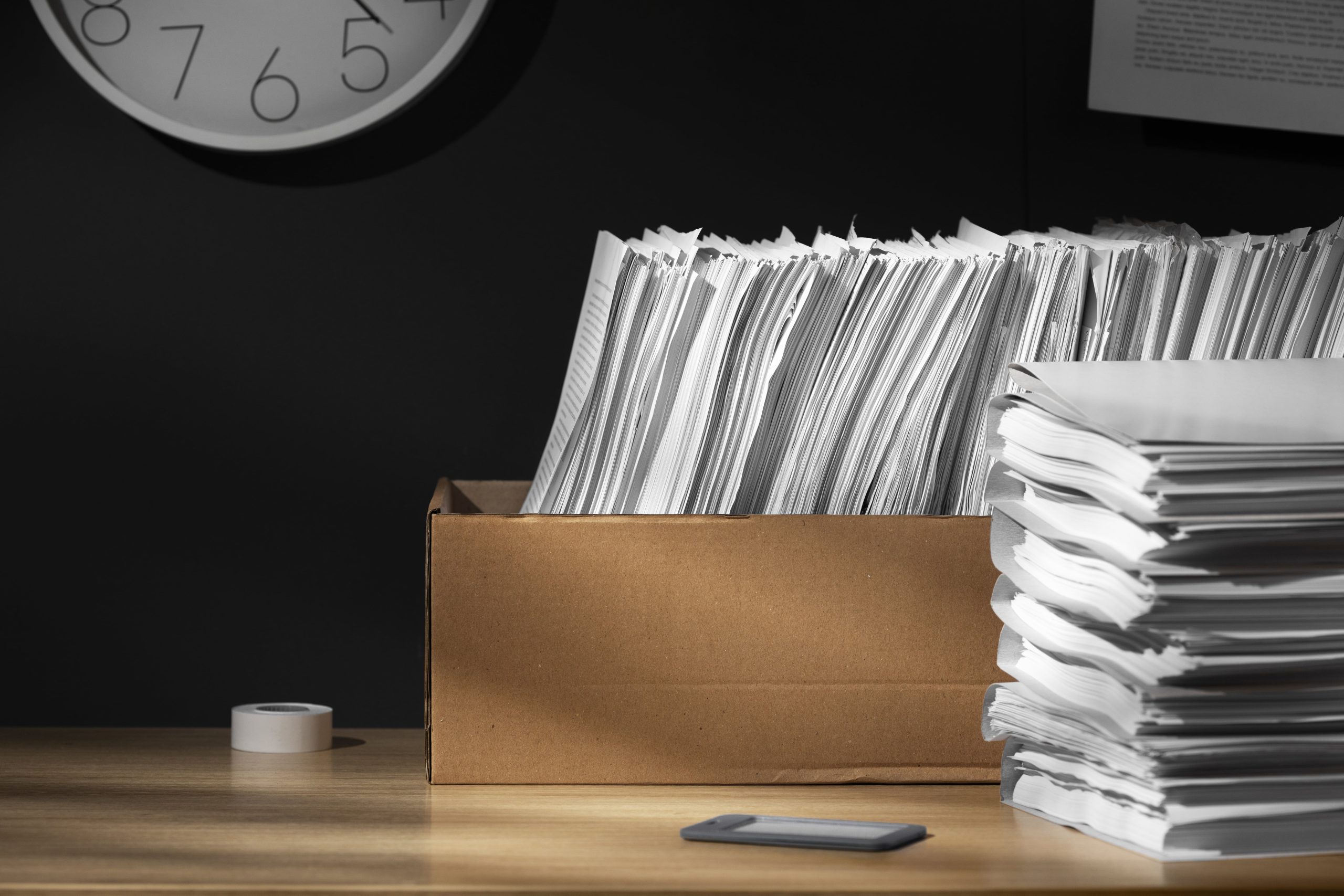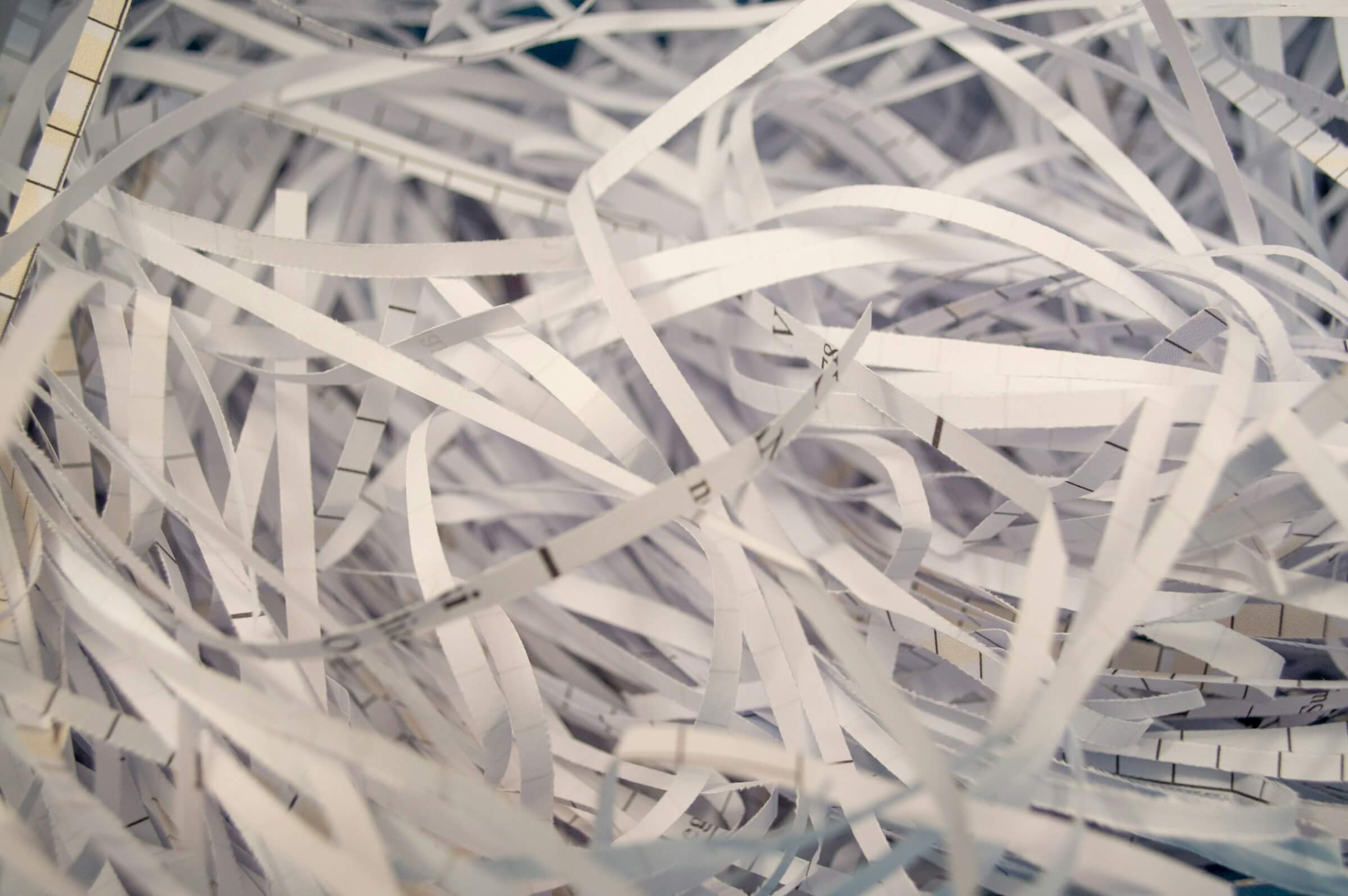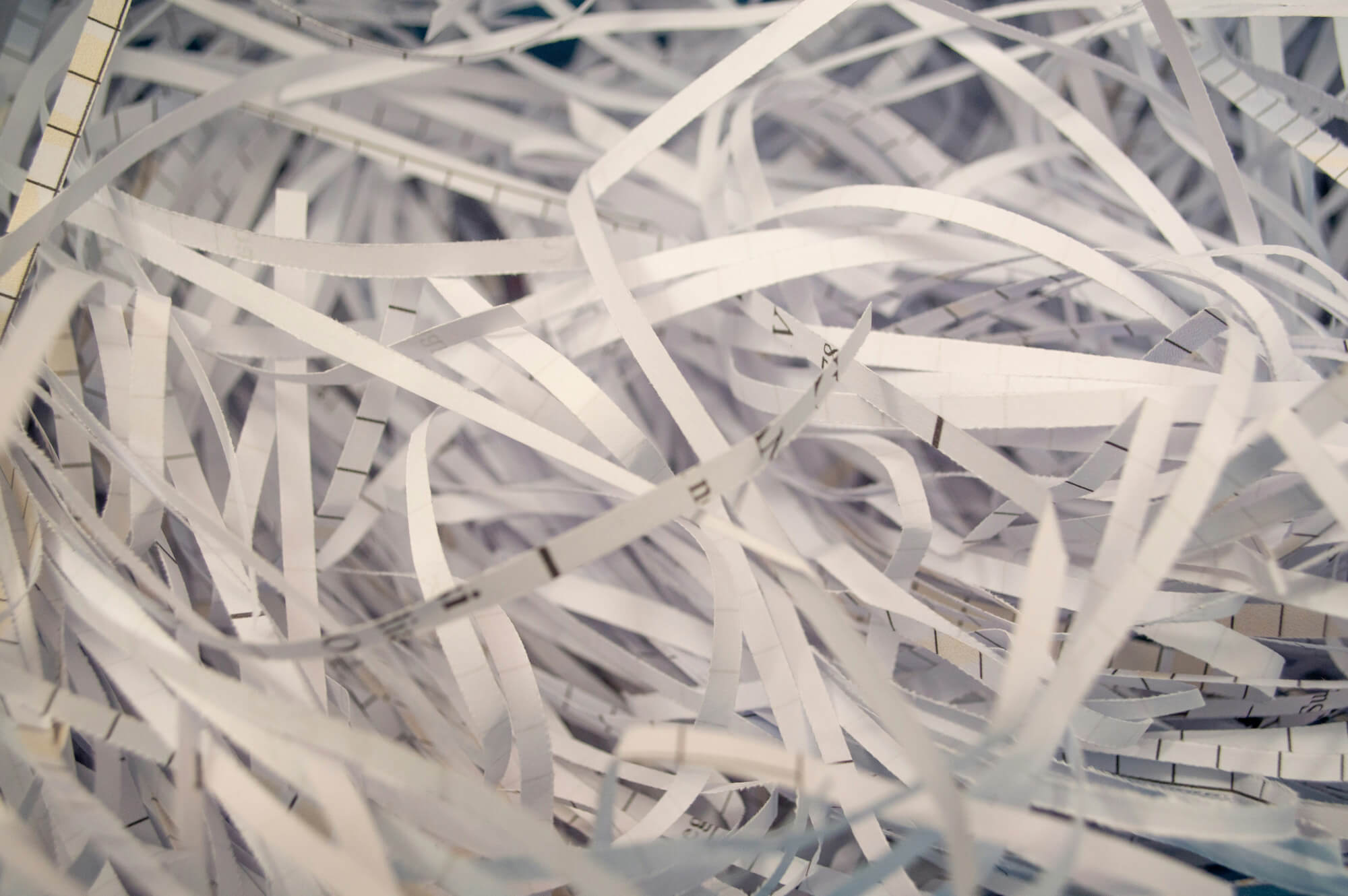Managing documents in your business is essential for ensuring legal compliance, data protection, and security. Whether you’re a small business owner or part of a larger organisation, understanding what to keep for long-term storage and what to shred immediately is critical. This not only protects against potential legal and privacy risks but also ensures that your business operates smoothly.
In this guide, we will walk you through the types of documents that should be retained for legal, financial, and personal reasons, and explain the importance of securely shredding sensitive documents. We’ll also show you how effective document management can help keep your business compliant and secure.
The Importance of Accurate Document Storage
Proper document storage is not just about organisation; it’s about compliance and data security. In today’s digital world, businesses are under increasing pressure to protect their data, both online and in physical form. Ensuring that documents are stored securely and organised correctly helps businesses meet data protection regulations and avoid legal complications.
When you manage your documents well, it becomes easier to access key files quickly, while also satisfying any regulatory requirements. Moreover, secure document storage also reduces the risk of data loss, protecting your business from potential fines and reputational damage. This is why adopting proper document retention and shredding practices is a crucial aspect of running a business in a compliant and secure manner.
What is Confidential Waste?
Confidential waste refers to any documents or materials containing sensitive data that must be securely disposed of to prevent identity theft, fraud, or data breaches. Businesses handle confidential waste in the form of paper records containing personal information, financial data, medical records, and more. Without secure disposal practices, sensitive information may fall into the wrong hands, putting the company and individuals at risk.
To prevent this, it’s essential to establish a process for handling confidential waste. This can include sorting documents that need to be shredded from those that can be recycled, ensuring that private information is disposed of securely. For businesses, setting up a clear confidential waste management system, including using shredding services like Britannia Lanes Shredding, is vital to protect data and ensure compliance.
The Legal and Privacy Risks Your Business May Face
Failure to manage and dispose of documents properly can lead to significant legal and privacy risks. Businesses that do not adhere to data protection laws or regulatory compliance guidelines could face substantial fines and legal consequences. The risks include:
- Data Leaks: Unnecessary documents containing sensitive information, such as client data or employee records, left unsecured can be accessed by unauthorised parties.
- Regulatory Non-Compliance: If a business doesn’t retain certain documents for the required time (such as financial or employee records), it can be penalised by regulatory bodies.
- Contractual Disputes: Outdated or mismanaged contracts can lead to disputes, legal challenges, or even voided agreements.
- Damaged Reputation: Data breaches or failing to meet legal requirements can severely damage a company’s reputation, leading to loss of trust from customers and partners.
By securing your business’s documents and ensuring proper retention, you mitigate these risks, protect your reputation, and stay compliant with the law.
Why It’s Important to Install Data Protection Methods
Data protection has become a priority for businesses worldwide, with regulations such as the GDPR imposing stricter rules on how data is managed. To avoid data breaches and ensure compliance, businesses must put the right data protection methods in place. This includes having secure document storage, encrypted digital files, and strict access controls to prevent unauthorised access to confidential information.
A company that adheres to these standards can also ensure that its employees and customers feel confident in its ability to protect sensitive data. Using a certified shredding service, such as Britannia Lanes Shredding, ensures that your document disposal practices are secure and compliant with relevant data protection regulations.
How to Keep Your Business Safe and Compliant
Managing important business documents requires organisation and an understanding of what needs to be stored and what can be securely shredded. Here’s how to ensure that your business stays safe and compliant:
- Implement a Document Management System
Create a systematic way of storing important documents, whether digitally or in physical form. This ensures that employees know where to find key documents and prevents unnecessary clutter. - Educate Your Team
Make sure your employees understand what constitutes confidential waste and the importance of secure document disposal. Provide training on document retention practices to ensure everyone is on the same page. - Use Secure Shredding Services
When documents are no longer needed, ensure they are securely shredded. Shredding sensitive documents protects your business from potential privacy breaches, helping to safeguard personal data, financial information, and legal documents. - Review Retention Periods
Keep track of how long certain documents need to be stored. For instance, financial records should be kept for a minimum of six years, whereas employee records might only need to be retained for a few years. Regularly review your document retention policy to ensure you’re following legal requirements and industry best practices.
The Types of Documents You Need to Retain
Certain documents must be kept for legal, financial, or personal reasons. Below is a guide to the key documents that should be retained for varying periods:
Financial Documentation
- Bank Statements
Retain bank statements for at least six years for tax and financial auditing purposes. These records may be necessary for future reference or to verify financial transactions. - Invoices and Receipts
Keep invoices and receipts for purchases and sales, especially if they pertain to tax deductions or business expenses. These should also be retained for six years. - Payroll Information
Employee payroll records, including wages, bonuses, and tax details, should be stored for a minimum of six years. - VAT Records
For VAT-registered businesses, VAT records should be kept for at least six years to comply with tax regulations. - Financing and Investment Information
Keep documents related to business loans, investments, and financing arrangements for as long as they are relevant. - Sales Records
Retain records of sales transactions for financial reporting and tax purposes.
Legal Documentation
- Company Formation Documents
Company registration documents, such as articles of incorporation or partnership agreements, should be kept indefinitely. - Business Contracts
Contracts, agreements, and other legal documents should be stored for at least the duration of the contract and for a period thereafter, depending on any clauses related to dispute resolution or statute of limitations. - Shareholder and Ownership Records
Keep records of company shares, shareholder agreements, and ownership stakes indefinitely.
Other Documentation
- Medical Records
If relevant to your business, such as in healthcare or insurance, retain medical records for the required period as stipulated by law. - Health and Safety Records
Keep records of workplace safety and employee health information for the duration required by law. - Employee Records
Retain employment records for a minimum of three years, including personal details, contracts, and disciplinary records.
Why Securely Shredding Sensitive Documents is Key
Once documents reach the end of their retention period, it’s vital to securely dispose of them. Sensitive documents, such as financial records, old receipts, and personal identification records, must be shredded to prevent identity theft, fraud, or misuse.
Using a professional shredding service ensures that sensitive information is completely destroyed, leaving no trace behind. This is essential to maintaining compliance with data protection laws and preventing any potential security breaches.
The Risk of Keeping Unnecessary Documents
Holding onto unnecessary documents can lead to several problems:
- Clutter and Inefficiency
Storing outdated or irrelevant documents takes up valuable space and makes it harder to locate important records when needed. - Legal and Privacy Risks
Keeping documents longer than necessary can expose your business to privacy violations, especially if sensitive data is involved. - Compliance Failures
If documents are not shredded securely when they are no longer required, you risk breaching data protection regulations.
Why Choose Britannia Lanes Shredding for Secure Shredding Services
At Britannia Lanes Shredding, we understand the importance of secure document disposal. Our shredding services are designed to help businesses protect sensitive data while ensuring compliance with data protection laws. We provide secure, confidential shredding services that guarantee your business stays safe and compliant.
Our tailored shredding solutions cater to your specific needs, offering flexible scheduling and convenient collection options. Whether you need one-time shredding or regular service, we ensure that all documents are destroyed securely and sustainably.
Speak to us today to learn how our secure shredding services can help your business remain compliant with data protection regulations and protect your sensitive information.




